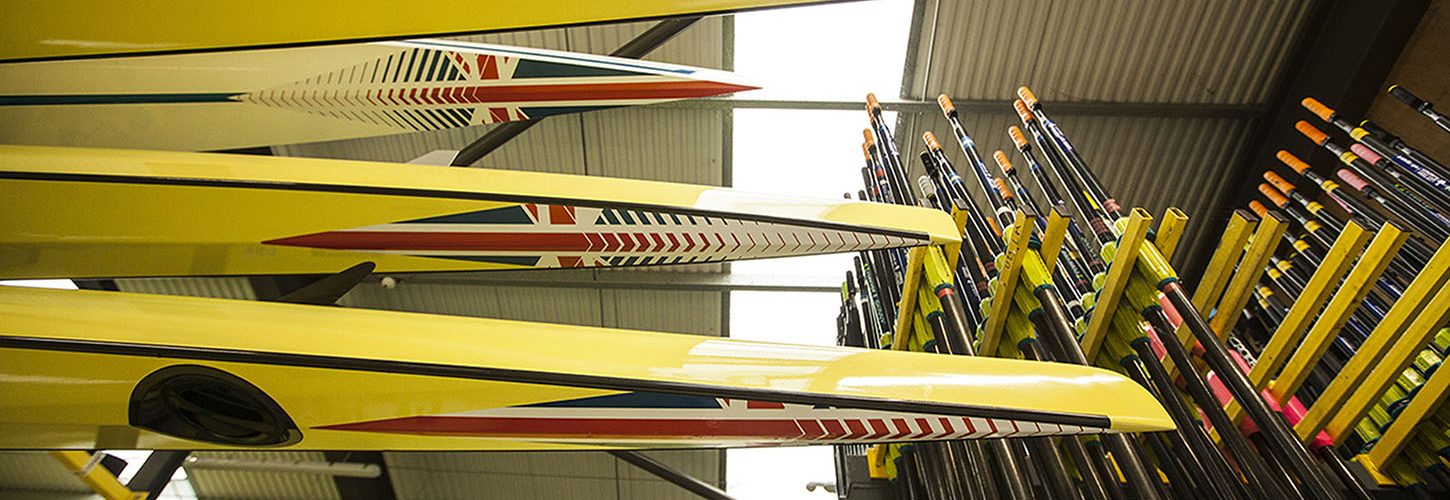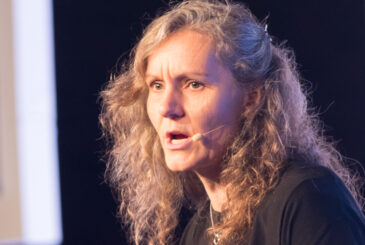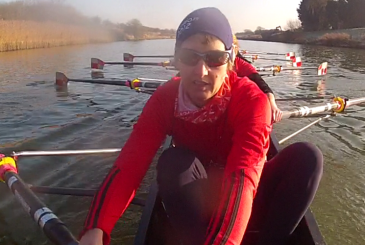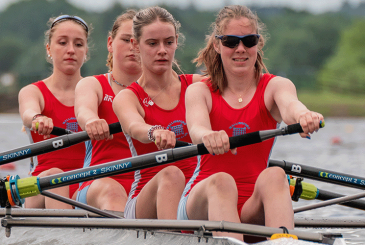The path to senior representation in the GB Rowing team may seem, at times, a route less travelled by those who begin their rowing careers at a junior level. But as Rose Crawford found out from two of our current stars, there are clear footprints to follow
For juniors starting rowing this season, the senior World Rowing Championships must seem very far away. The miles required to make it on the grandest of stages are substantial but the British Rowing pathway, designed to break the journey down into smaller, more manageable chunks, leaves the door very much to open to burgeoning young talent.
Like several of the current GB Rowing Team, Kyra Edwards and James Rudkin learnt to row as juniors and have been selected for the World Championships in Racice later this month. We caught up with them to talk about their experiences.
Humble beginnings
Kyra first began rowing on indoor machines in her school PE lessons before joining her local rowing club in Nottingham, which had a World Class Start Programme.

James was brought up in a rowing family; his father, Andrew, enjoyed a successful career as a sculler. James first rowed at the age of seven and was mostly coached by his dad throughout his junior years.

Both James and Kyra had their first taste of international rowing at the GB vs France J16 match, followed by the Coupe de la Jeunesse and then the Junior World Championships – a transition through the junior ranks that will be familiar to many around the country.
The two young rowers learned a lot off the water as well as on it as a result. For instance, when James went on training camp before Junior Worlds, it was the longest he had been away from home. It taught him valuable skills such as sharing a room with a teammate, knowing how to relax and even just the simple things such as the start sequence and the buzzer. For Kyra, racing over several days and being away on training camps has taught her the importance of home comforts – whenever she goes away now, she always takes her favourite blanket, cushion and teddy. Whilst she realises this is more at the extreme end, she says that many of the team “bring something like a mug to remind them of home”.
Student rhythm
After completing the junior circuit – culminating in a 12th-place finish at the Junior World Championships’ in 2012 – James went to Newcastle University to study History and Politics and develop his rowing further under the tutelage of legendary Italian coach Angelo Savarino. His key transition was moving from two blades to one in a program where heavyweight athletes undertook sweep rowing almost exclusively. It clearly paid off as he was selected for three U23 World Rowing Championships, ending with a silver medal in the men’s four in 2016. “If you can move a single, you can move a pair, a four or an eight,” explained James. “If you want to make a good sweep rowing crew, you should definitely know how to scull well”.
“Racing in the States is really similar to racing at U23 Worlds”
Kyra Edwards
Meanwhile, Kyra studied at UCLA in the US and rowed in UCLA’s first varsity eight throughout her time there. The choice to go and study across the Atlantic, in programs revered for their razor-focus on harmony between academic studies and competitive racing, is one that is being considered by more and more top talent from the UK. As such, the GB Rowing Team has acknowledged that an athlete racing and studying in the US does not have to attend trials throughout the year; they need only submit scores for consideration. “Racing in the States is really similar to racing at U23 Worlds,” said Kyra. “There’s just such a good quality of girls rowing in the US and the standard of eights racing [is] the same standard as the World Championships essentially”.
The step on
Despite the different routes they’ve taken, both James and Kyra were quick to acknowledge that the jump to senior international racing was exceptionally tough. “It’s not even the same sport anymore,” remarked Kyra. “You have to live, eat and breathe rowing to even stand a chance of being selected.”

For James, it was all about getting used to a new programme. “I didn’t get a personal best on the 2km erg for two years,” said James. “It took a while to adjust to what was expected of me but now, I’m still making jumps and getting better. I’m also really fortunate to have not suffered from too many injuries; the team have helped me develop a proper weight-lifting regime, something I didn’t do as a junior”. Kyra has been less fortunate in this regard, picking up a couple of back injuries which ultimately meant she missed out on Tokyo Olympics. Her top tips for preventing back injuries are to spend as much time lying down as possible and to prioritise activation and recovery. Finally, be patient; “It will take time, but it will get better and you really will come out the other end stronger and fitter,” she said.
“Focus on the process and don’t worry too much about the outcome”.
James Rudkin
James and Kyra have ticked off every stage of the GB rowing pathway and recognise that it is an extremely useful tool; it allows a natural progression from junior to U23 to senior and keeps athletes motivated as they move onto the next stage. Within those parameters, as evidenced by James and Kyra, each journey is unique and athletes peak at different times. Above all else though, staying firmly in love with the sport carries the most weight. “The most important thing is to enjoy your rowing,” commented James. “Focus on the process and don’t worry too much about the outcome”.










